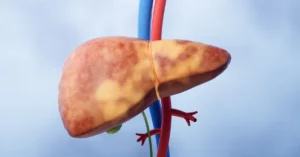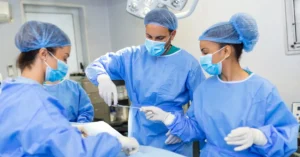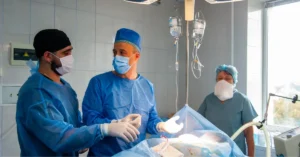
Fatty Liver Disease
Fatty liver disease, once a rare condition, has now become

Following a liver transplant, infection risks are notably high due to the immunosuppressive medications used to prevent organ rejection. These medications can weaken the body's natural defenses, making it more susceptible to bacterial, viral, and fungal infections. Common infection sites include the surgical wound, lungs, and urinary tract.
Effective management of infection risks is crucial for a successful liver transplant recovery. Here are key strategies to mitigate these risks:
By following these strategies, patients undergoing liver transplant surgery can significantly reduce their risk of infections and improve their overall recovery process.
Liver transplant surgery involves intricate procedures that can lead to significant bleeding. The liver is a highly vascular organ, meaning it has a rich supply of blood vessels, which makes controlling bleeding a critical aspect of the surgery. Excessive bleeding can complicate the operation and extend recovery time.
After the surgery, patients are at risk of blood clots due to changes in blood flow and clotting factors. Blood clots can form in veins or arteries and may lead to severe complications such as deep vein thrombosis (DVT) or pulmonary embolism. These conditions require prompt attention to prevent further health issues.
Managing bleeding and blood clotting complications is essential for the success of liver transplant surgery. Effective strategies and careful monitoring ensure a smoother recovery process and help mitigate potential risks associated with the procedure.
Anesthesia-related complications are a significant concern in liver transplant surgery. While anesthesia is crucial for ensuring the patient remains unconscious and pain-free during the procedure, it carries potential risks that can impact the overall success of the liver transplant. These complications can include allergic reactions, respiratory issues, cardiovascular problems, and more. Here’s a closer look at these risks and their management:
Effective management of anesthesia-related complications is crucial for a successful liver transplant surgery. Through thorough pre-anesthesia assessments, vigilant monitoring during the procedure, and prompt post-operative care, many of these risks can be minimized, ensuring a smoother recovery process.
Organ rejection is a significant concern following a liver transplant. The body's immune system may recognize the new liver as a foreign object, leading to an immune response against it. This can manifest as acute or chronic rejection, which can affect the success of the liver transplant and the patient's overall health.
Managing organ rejection and the immune response is crucial for the long-term success of liver transplant surgery and the overall well-being of the patient.
After a liver transplant, patients face several long-term surgical and health risks that need ongoing management and vigilance. Understanding these risks helps in planning a comprehensive liver transplant recovery strategy and maintaining long-term health.
Understanding and managing these long-term risks are crucial for ensuring a successful liver transplant outcome and improving the quality of life for patients.
The primary risks include infection, bleeding, anesthesia complications, organ rejection, and postoperative liver function issues.
Infection risks can be managed with prophylactic antibiotics, regular monitoring, and strict hygiene practices.
Common complications include allergic reactions, respiratory issues, and cardiovascular problems.
Organ rejection is managed with immunosuppressive medications, regular monitoring, and lifestyle adjustments.
Long-term risks include chronic rejection, recurring liver disease, and other health issues, which require ongoing medical care and a healthy lifestyle.

Fatty liver disease, once a rare condition, has now become

Cirrhosis of the liver is a serious medical condition that



Undergoing a liver transplant is a monumental step in treating

A liver transplant is a crucial and intricate surgical procedure

Embarking on a liver transplant journey in India is a

Liver transplants in India have become a crucial procedure for

Acute liver failure is a rapid loss of liver function, often occurring within days or weeks in individuals without pre-existing liver conditions. It can result from viral hepatitis, drug toxicity (especially acetaminophen overdose), autoimmune liver disease, or metabolic disorders. Symptoms include jaundice, confusion, and bleeding disorders, progressing quickly to life-threatening complications like brain swelling and multi-organ failure.

Cirrhosis of the liver is a serious medical condition that affects millions of people worldwide. Understanding this disease, its causes, symptoms, stages, and available treatments can help manage and potentially prevent its progression.

Liver transplantation in India has emerged as a critical procedure, saving countless lives. However, to ensure the ethical and safe practice of organ transplantation, the Indian government has established a comprehensive legal framework.